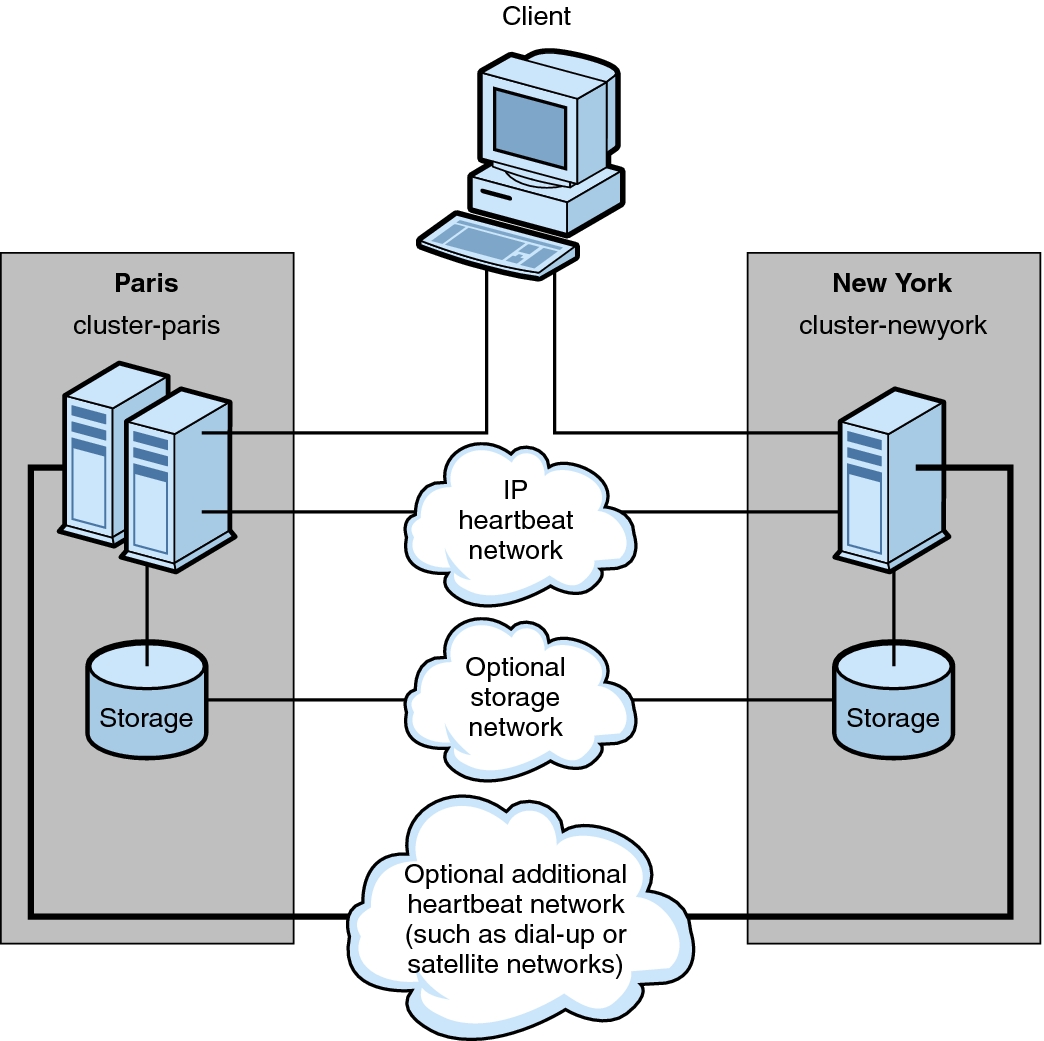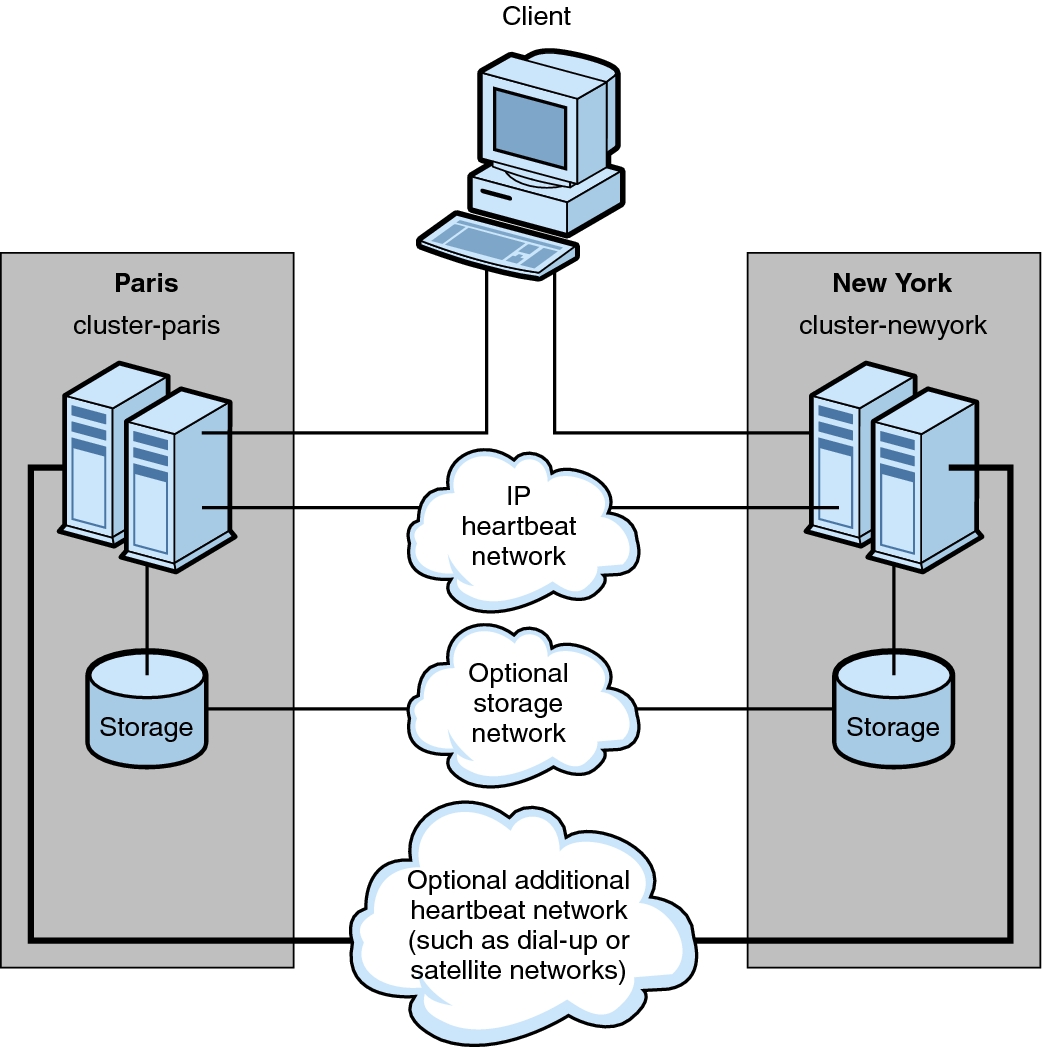Data Replication Configuration
The disaster recovery framework does not limit the distance between partner clusters. Partner clusters require data replication connections to support the protection groups that are hosted by the partnership. Partner clusters must be compatibly configured to support data replication between the clusters.
The disaster recovery framework supports replication from a single-node cluster to a single-node cluster, from a multinode cluster to a single-node cluster, and from a multinode cluster to a multinode cluster.
While you can use a single-node cluster at both the primary and backup sites, a single-node cluster offers no internal redundancy. To ensure no single point of failure, you must have a minimum of two nodes in a cluster at the primary site. Use a single-node cluster at the secondary site as a cost effective backup solution if the secondary site is used only for backup purposes. Do not use single-node cluster to run mission critical applications.
Primary clusters and secondary clusters can have any configuration that is supported by the disaster recovery framework if the data replication characteristics of these clusters are compatible. The level of compatibility varies with each data replication product.
-
The distance between the partner clusters
-
The amount of data that is being replicated
-
Data replication configuration parameters
The following requirements determine the data replication connection:
The disaster recovery framework enables you to balance between data consistency and the cost of the connection, where data consistency is the acceptable amount of data loss.
The following figure illustrates a data replication configuration from a two-node cluster to a single-node cluster.
Figure 5 Data Replication From a Two-Node Cluster to a Single-Node Cluster

The following figure illustrates a data replication configuration from a two-node cluster to a two-node cluster.
Figure 6 Data Replication From a Two-Node Cluster to a Two-Node Cluster
